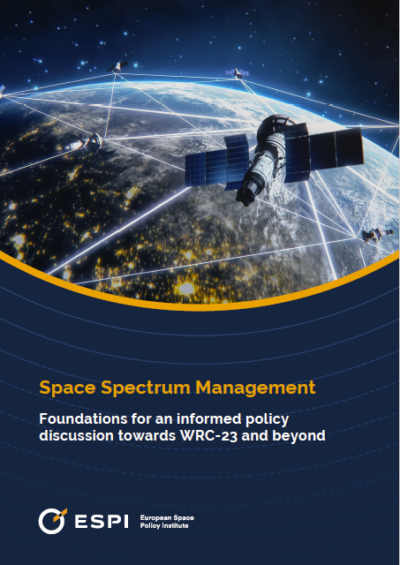The recognition of orbits and spectrum as valuable, scarce, and finite natural resources raises the need for an effective regulatory framework that will ensure the maximisation of these resources and their interference-free operations. The debate will have to focus on significant issues related to spectrum policy at the European and international level.
In today’s world, the role played by wireless communication is becoming exceedingly crucial. Devices of different kinds, which rely on wireless networks to work, are an integral part of our everyday life: from smartphones to Near Field Communication (NFC) and Radio-Frequency Identification (RFID), including tools such as remote controllers or wearables.
Radio spectrum availability is the backbone of the digital economy, with the full portfolio of space applications being no exception. Both the operation of satellites and the provision of services intrinsically relies on wireless communication. Space operations can only be conducted in a reliable manner, provided that access to required spectrum bands is granted, and their use is ensured free of interference.
Whilst frequency bands are crucial enablers of space activities, spectrum is a valuable, scarce, and finite resource. Moreover, the use of frequency bands for satellite missions must coexist with the need for spectrum of other applications and services, a fact that makes spectrum availability even more limited. In this regard, regulatory decisions are needed to further ensure an effective and efficient use of frequency bands for all, protecting space data transfer against interference with other spacecraft, ground stations or terrestrial applications. Thus, the utilisation of most spectrum bands requires highly competitive and complex allocation, coordination, and planning frameworks.
This Report aims to explain the topic and focus on the crucial policy dimension of spectrum management in outer space, while also investigating how spectrum management systems could be enhanced to more effectively and efficiently deal with the currently congested space and spectrum environment and the demand for a more connected world. The Report concludes with an overview of the European regulatory framework, well as a European perspective to spectrum policy.
Acknowledgments:
The Report benefitted from the review of external experts, and interviews with selected stakeholders ranging from international organisations to national entities, relevant industrial actors, and academia.
The list of Interviewers & Reviewers reflects the diversity of actors involved in spectrum management. Additional informal interviews were conducted with representatives of the European Space Agency (ESA), national space agencies and spectrum authorities, as well as additional representatives of the private sector.
A list of “Interviewers & Reviewers” can be found in the Acknowledgement section of the Report.
Contributions:
ESPI welcomes proposals and contributions from policymakers and industrial stakeholders, as well as the broader space and spectrum community to further shape the ESPI´s Role and actions in Space Spectrum Policy. External stakeholders are kindly invited to contact the Lead author of this Report.





